Evangeline. Longfellow. Eugene Ardant. National Education and Recreation Bookstore. Acadia. Acadian deportation. Poem.Love story.
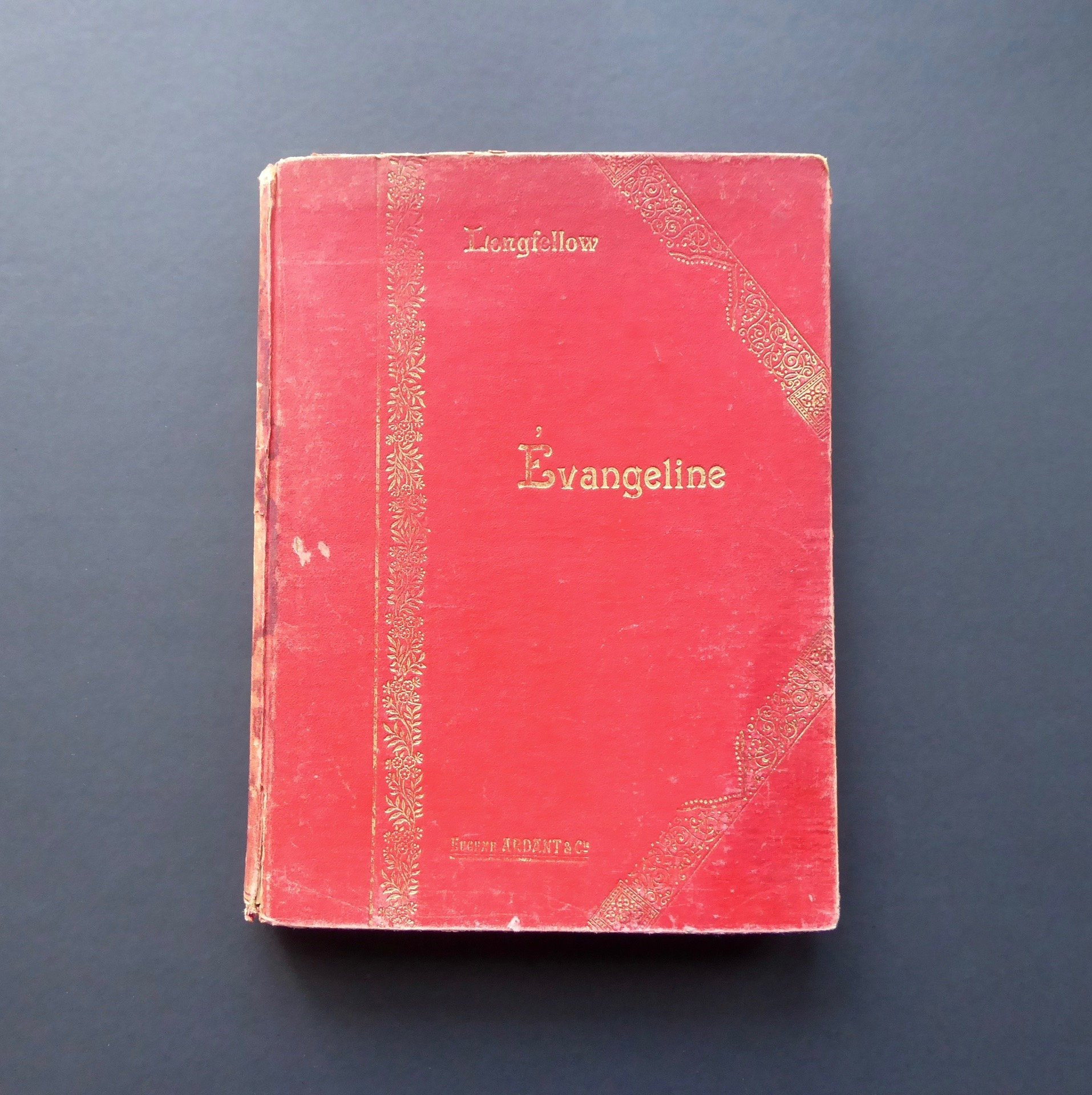
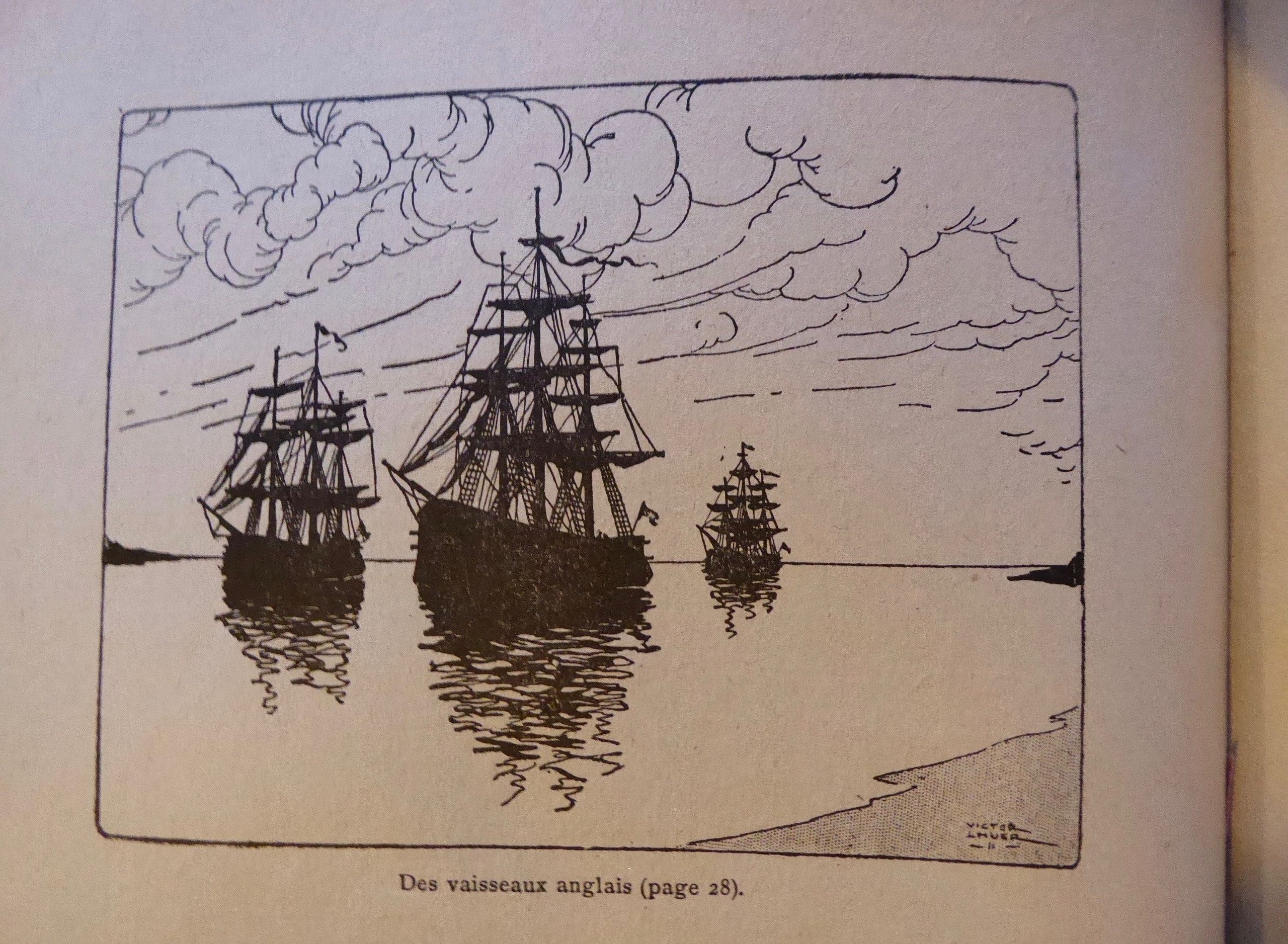
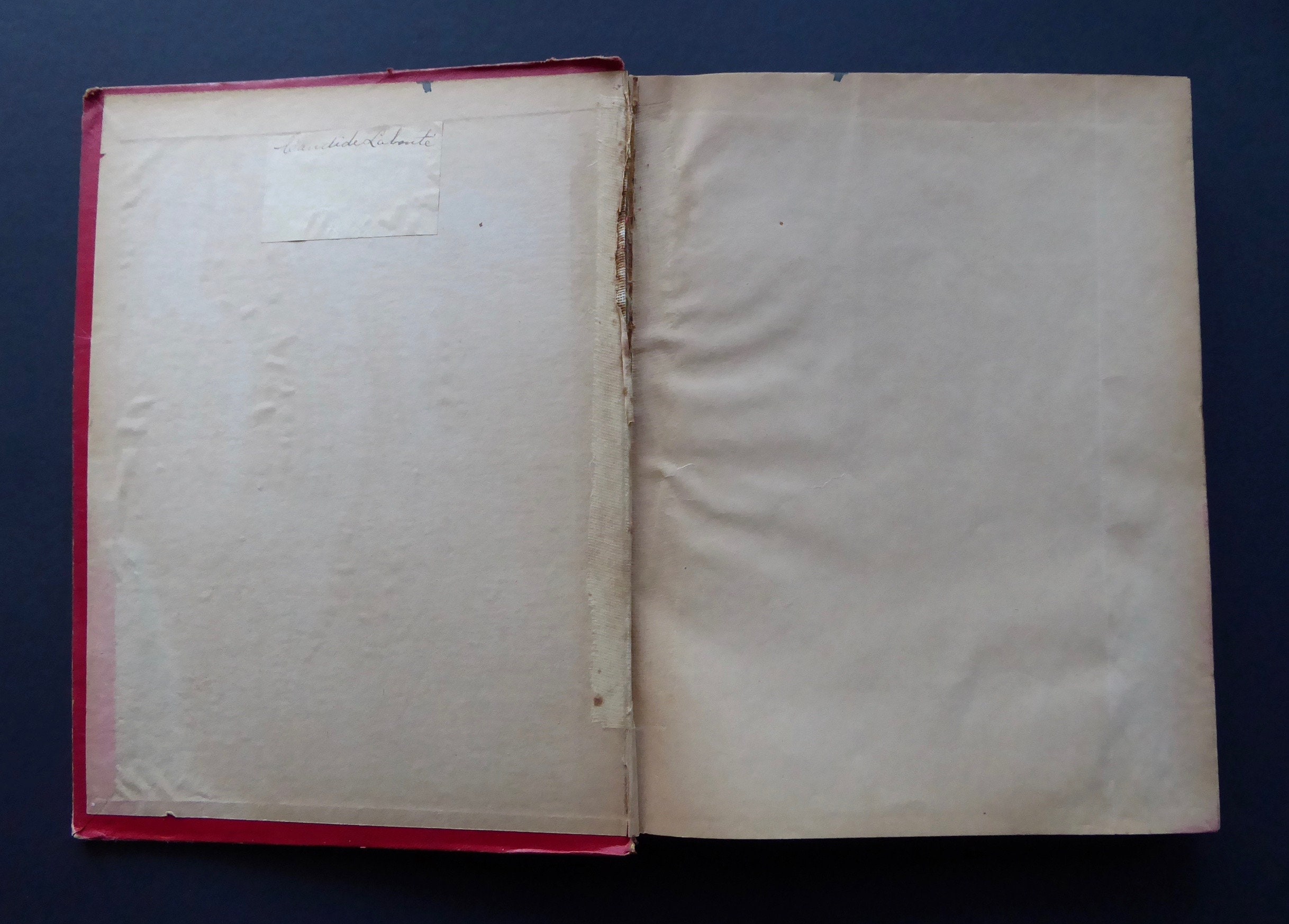
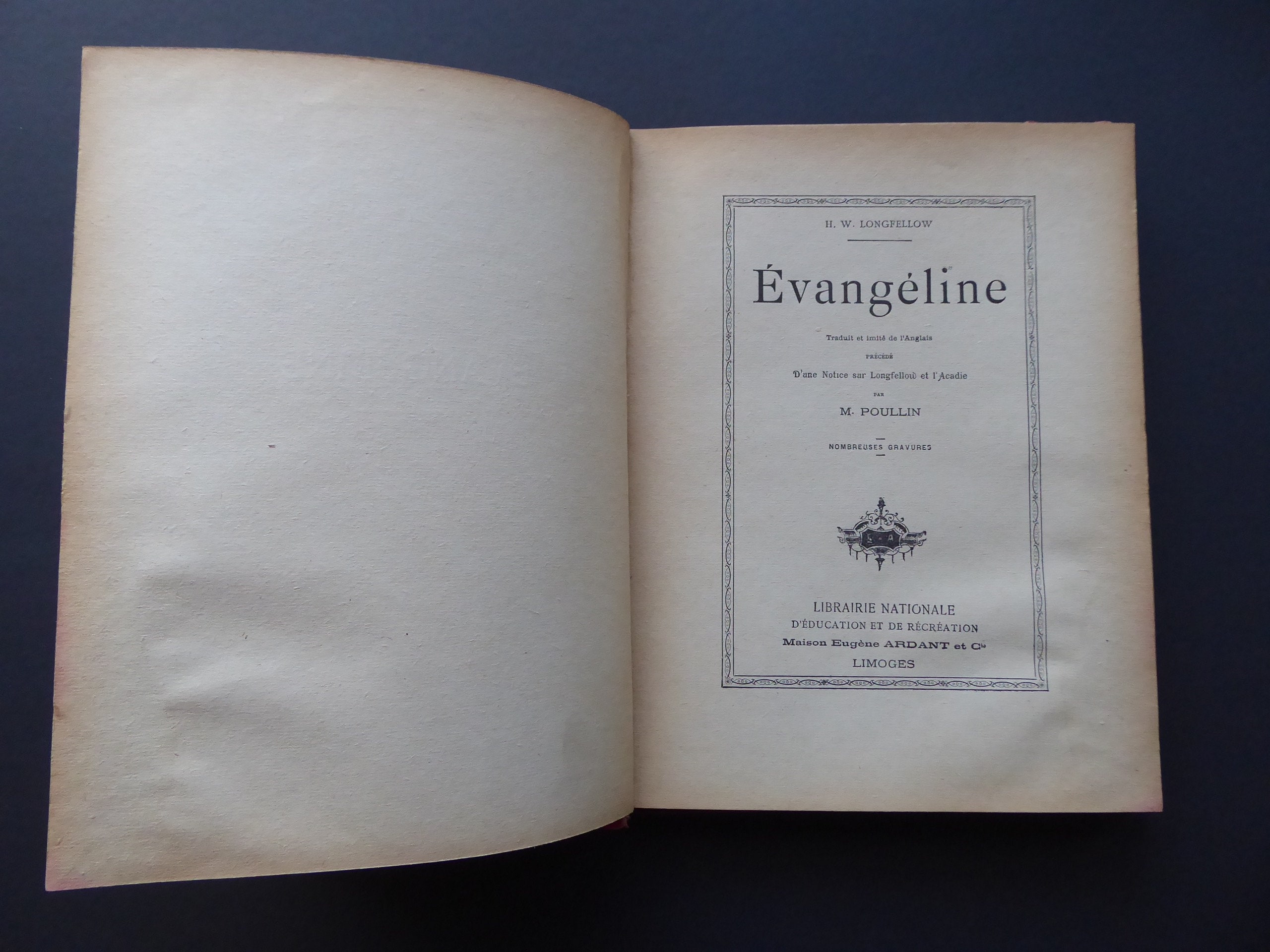
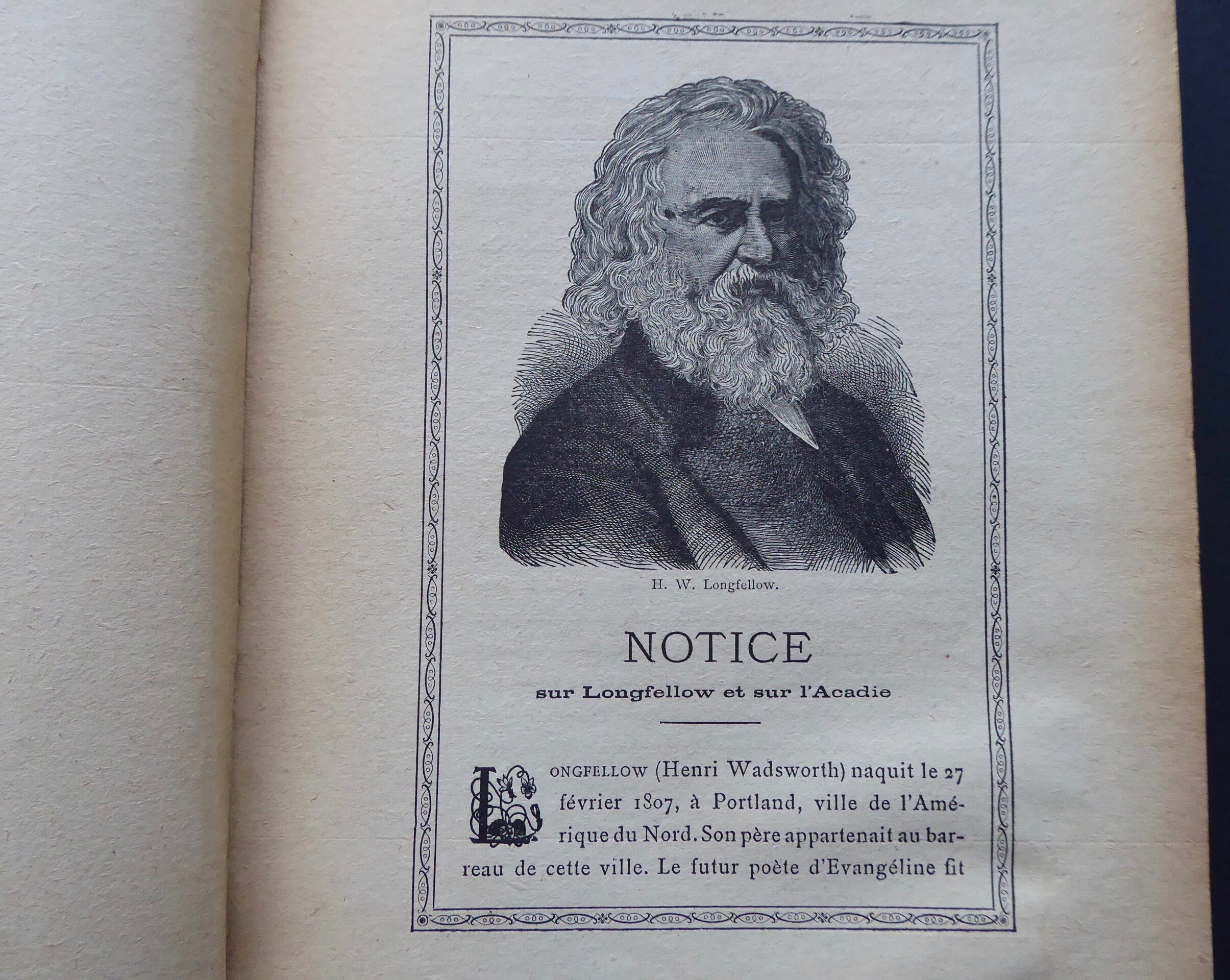

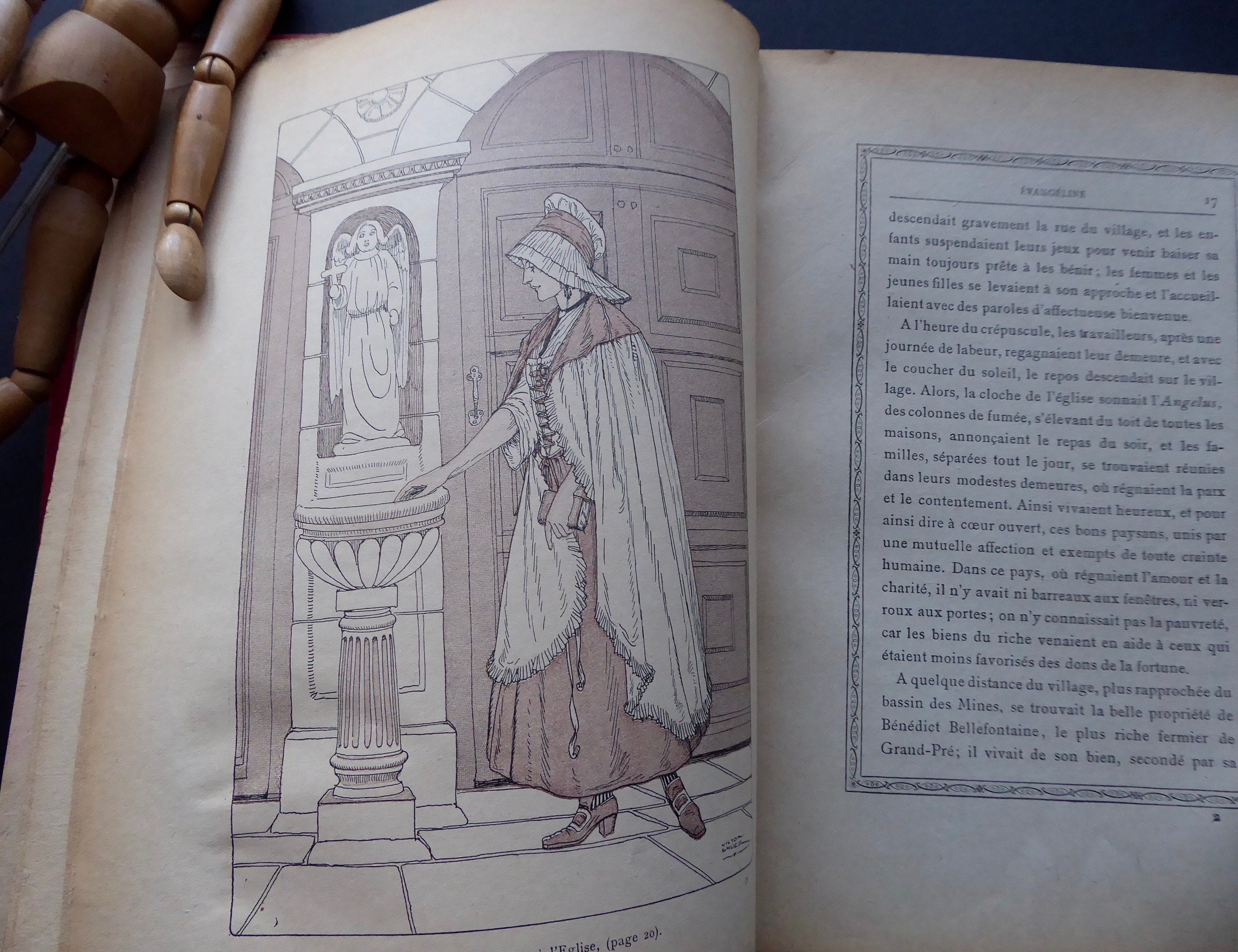
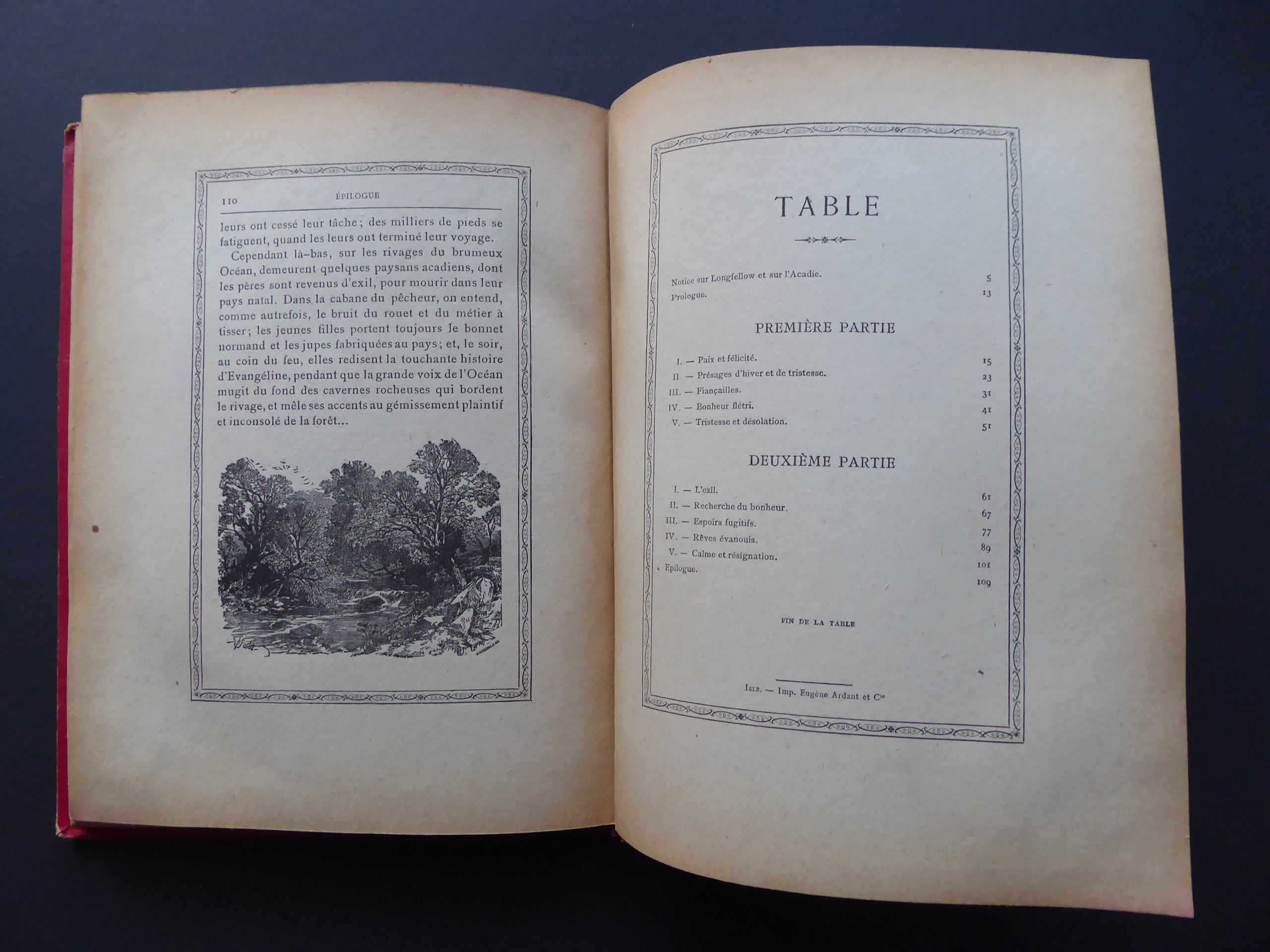
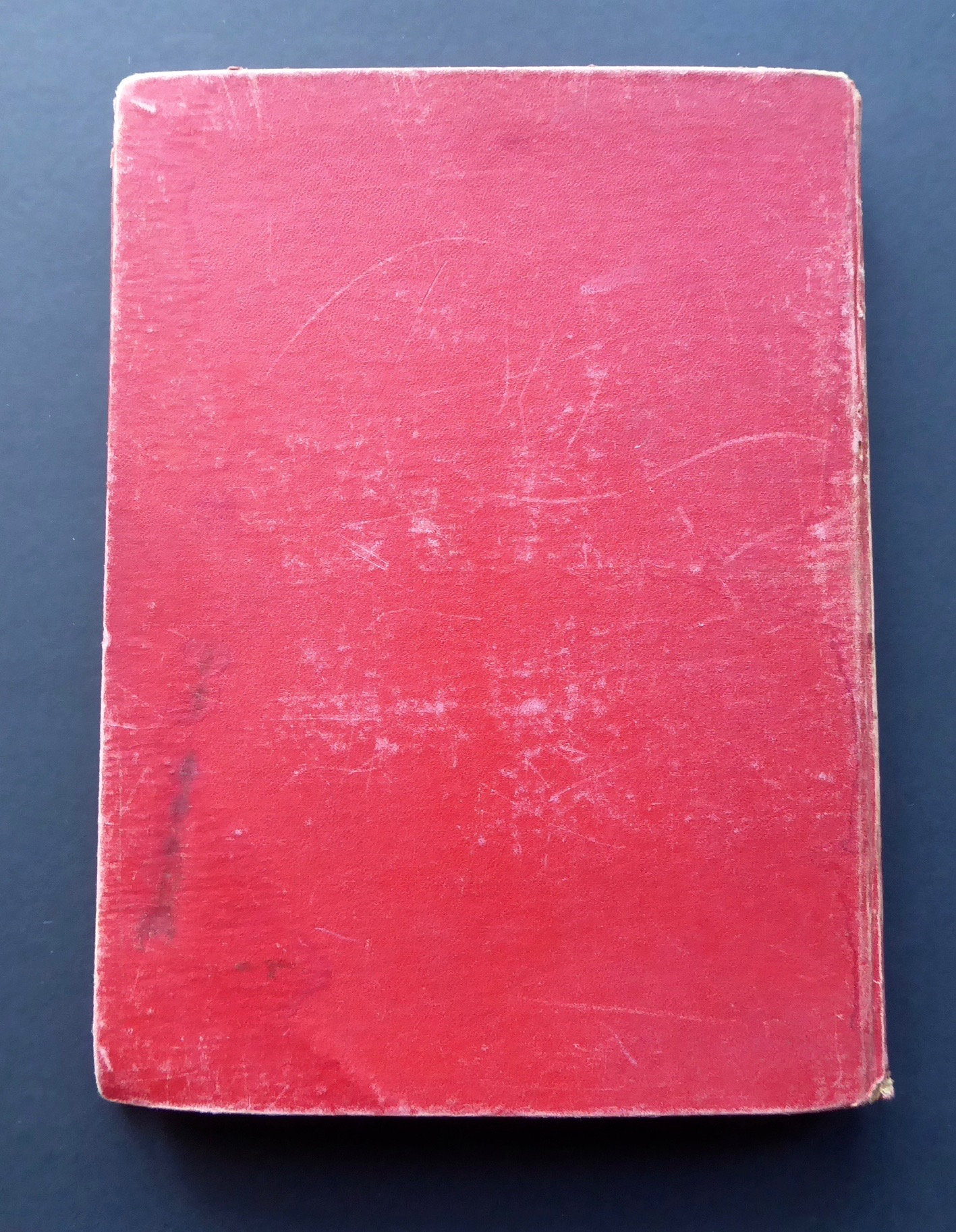
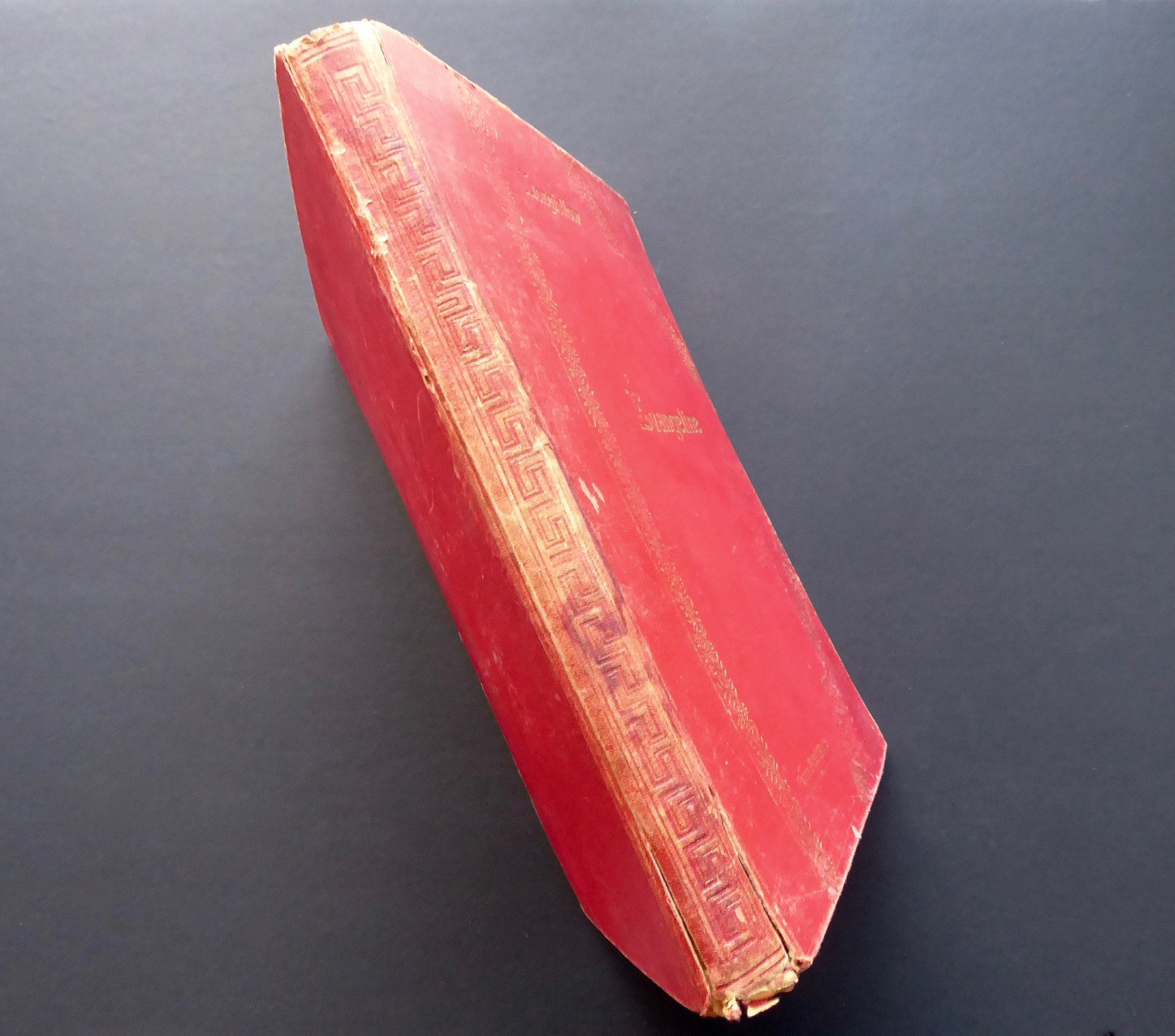
Evangeline.
H.W. Longfellow.
Translated and imitated from English.
Preceded by a notice on Longfellow and Acadia by Mr. Poullin.
National Bookseller of Education and Recreation.
Eugene Ardant House . Limoges
No date (Probably year 20)
In-4.
Editor's carding.
27 black and white illustrations and 5 illustrations in bichrome by Victor Lhuer French draughtsman and painter (1876 - 1952)
State of use
Slightly wavy cover (see photos)
Lower corners right of very slightly wavy pages (see photos)
Junction of the back and the 1st flat split down by 5 cm (see photos)
Junction guard page and 1st flat split at top by 13 cm (see photos)
Brushed corners, slices and headdresses (see photos).
Two Acadian lovers are forced to separate shortly after their engagement during the Great Disturbance. The heroine travels across America in search of her lover, eventually settling in Philadelphia and working with the poor as a nurse. She finds her lover among the sick, and he dies in his arms.
Originally a poem about the deportation of Acadians who wanted to talk about the scale and diversity of human beings in the United States, the version of this book has several major differences with the original poem.
The story translated into French becomes a vision of French Canadian identity and contributes to the founding myth of the Acadian identity of Canada's maritime provinces.
Instead of being a love story in Acadia, the French translation becomes a love story of the Acadian land.
Evangeline is the first work to speak of the deportation of Acadians.
If you have any questions, don't hesitate.
Returns & Exchanges
I don't accept returns, exchanges, or cancellations
But please contact me if you have any problems with your order.
